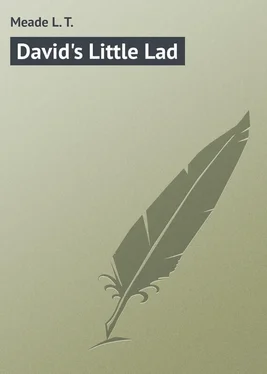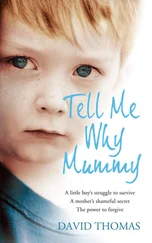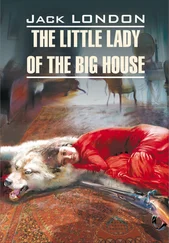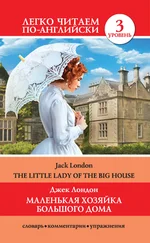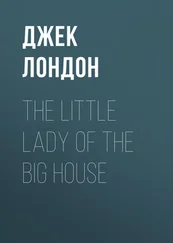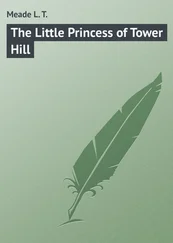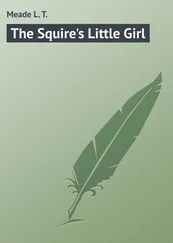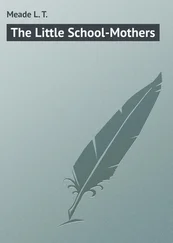L. Meade - David's Little Lad
Здесь есть возможность читать онлайн «L. Meade - David's Little Lad» — ознакомительный отрывок электронной книги совершенно бесплатно, а после прочтения отрывка купить полную версию. В некоторых случаях можно слушать аудио, скачать через торрент в формате fb2 и присутствует краткое содержание. Издательство: Иностранный паблик, Жанр: foreign_prose, на английском языке. Описание произведения, (предисловие) а так же отзывы посетителей доступны на портале библиотеки ЛибКат.
- Название:David's Little Lad
- Автор:
- Издательство:Иностранный паблик
- Жанр:
- Год:неизвестен
- ISBN:нет данных
- Рейтинг книги:3 / 5. Голосов: 1
-
Избранное:Добавить в избранное
- Отзывы:
-
Ваша оценка:
- 60
- 1
- 2
- 3
- 4
- 5
David's Little Lad: краткое содержание, описание и аннотация
Предлагаем к чтению аннотацию, описание, краткое содержание или предисловие (зависит от того, что написал сам автор книги «David's Little Lad»). Если вы не нашли необходимую информацию о книге — напишите в комментариях, мы постараемся отыскать её.
David's Little Lad — читать онлайн ознакомительный отрывок
Ниже представлен текст книги, разбитый по страницам. Система сохранения места последней прочитанной страницы, позволяет с удобством читать онлайн бесплатно книгу «David's Little Lad», без необходимости каждый раз заново искать на чём Вы остановились. Поставьте закладку, и сможете в любой момент перейти на страницу, на которой закончили чтение.
Интервал:
Закладка:
Meade L. T.
David's Little Lad
Chapter One
This is the Story within the Story
Yes, I, Gwladys, must write it down; the whole country has heard of it, the newspapers have been full of it, and from the highest to the lowest in the land, people have spoken of the noble deed done by a few Welsh miners. But much as the country knows, and glad and proud as the country is, I don’t think she knows quite all – not exactly what mother and I know; she does not know the heart history of those ten days. This is the story within the other well-known story, which I want to write here.
On a certain sunny afternoon in September, 1876, I was seated up in the window of the old nursery. I say in the window, for I had got my body well up on the deep oak seat, had flattened my nose against the pane, and was gazing with a pair of dismal eyes down on the sea, and on some corn-fields and hay-fields, which in panoramic fashion stretched before my vision.
Yes, I was feeling gloomy, and my first remark, after an interval of silence, was decidedly in keeping with my face and heart.
“Gwen,” I said, “what is it to be buried alive?” Gwen, who was singing her charge to sleep to a lively Welsh air, neither heeded nor heard me.
“Gwen!” I repeated in a louder key.
“Men are false and oft ungrateful,
Derry derry dando,”
sang Gwen, rocking the baby, as she sang, in the most dexterous manner.
Gwen had a beautiful voice, and I liked the old air, so I stayed my impatient question to listen.
“Maids are coy and oft deceitful,
Derry derry dando,
Few there are who love sincerely,
Down a derry down.
Say not so, I love thee dearly,
Derry derry down down,
Derry down down derry.”
“None but thee torment and teaze me,
Derry derry dando,”
I shouted in my impetuous manner, and leaving my seat, I went noisily to her side.
“Gwen, I will be heard. I have not another soul to speak to, and you are so cross and disagreeable. What is it to be buried alive?”
“’Tis just like you, Gwladys,” said Gwen, rising indignantly. “Just after two hours of it, when I was getting the darling precious lamb off to sleep, you’ve gone and awoke him. Dear, dear! good gracious! there never was such a maid!”
Gwen retired with the disturbed and wailing baby into the night nursery, and I was left alone.
“None but thee torment and teaze me,
Derry derry dando,”
I sang after her.
Then I returned to my seat on the window-sill, curled myself up tighter than ever, flattened my nose again against the pane, and began to think out my dismal thoughts.
Yes, my thoughts were undoubtedly dismal, and very melancholy must my eyes have looked, and absurdly long and drawn down the corners of my mouth. Had anybody been there to see, they must have pronounced me sentimental in the extreme; but no one was by, and – there was the rub – that was the reason I looked so melancholy. Even Gwen, rocking baby to sleep, could be disturbed at least by my long drawn sighs, but Gwen had retired into the night nursery, out of reach of my despondency, and though I could hear her cheerful voice in the distance, she certainly could no longer hear me. I was utterly alone.
I pressed my face against the window pane, and gazed at the scene before me. It was a fair scene enough. A broad sweep of sea, the waves sparkling in the sunshine – some rugged rocks – a little patch of white sand; all this lay close. In the distance were some hills, magnificently clothed. To the right, I saw oak, ash, beech, in their autumn dress; to the left, yellow fields of corn, an orchard or two; some mowers were cutting down the corn, and laughing merrily; some children were eating apples in the orchards – over all a gentle breeze stirred, and the sun shone out of an almost cloudless sky.
Yes, the scene was very fair, but I did not appreciate it. My eyes had rested on those trees, and those hills, and that sea all my life – I was tired of the unvarying monotony. Nothing wearied me so much as when visitors came to stay with mother, visitors who did not know our country, and who consequently went into raptures over our Welsh scenery. I am quite sure now that the raptures were genuine, but at the time they seemed to me very like duty talk. I always listened contemptuously; I always answered carelessly, “Oh, yes, the place is well enough;” and I always thought bitterly in my heart of hearts.
It is easy for you, fine sir or madam, to speak and to admire, who need only stay in this place for a week or fortnight, but what if you had to live here always , from year’s end to year’s end. If you had to see the meadows, and orchards, and sea, and the old grey house, and the trees and sky – in short, all the fair landscape, not only in its summer glory, but in its winter desolation, would not the country then appear a little tiresome to you? Might you not then find an occasional visit to Cardiff, and an occasional ride across the fields, and a far from occasional stay at home, slightly wearying, and might it not possibly occur to you that yours was a dull life? For this was my fate. I had always lived at Tynycymmer. I had always seen the hills clothed with trees in the distance; I had always watched the ripening fruit in the orchards, and the ripening corn in the fields. In short, I was a Welsh girl who had never gone out of Wales in her life. Never had I even seen Gloucester, never had I set foot on English soil.
Circumstances too many to mention had conspired to thus isolate me. I had once paid a visit, when a little child, to North Wales, but all the rest of my sixteen years had been spent with mother, at Tynycymmer, in the county of Glamorganshire. A rich country, a rambling, romantic old home, a fair scene, where gentle care had tended me, this I acknowledged, but I also knew that I was tired, weary, sick of it all.
With my absurdly dismal face gazing outward, I repeated the question to myself, which nurse Gwen had refused to answer; “What is it to be buried alive?”
The question had arisen in my mind from a paragraph in a local paper, which I had seen to-day.
This paragraph was headed “ Buried alive .”
It contained an account of some colliers in a not very distant part of Glamorganshire, who had been killed in a mining accident, truly buried in their full health and strength by the sudden giving way of a column of coal.
I had read the paragraph aloud to mother and David at breakfast.
I had seen David’s face flush and then grow pale, had heard mother say, “That place is not far from Ffynon; I am glad the accident did not happen in our mine, David.”
“Thank God! and it might have been,” from David.
Then mother added —
“Things will mend in the old place soon, my son.”
“I trust so,” from David.
Then expressions of pity and sympathy from both pairs of lips, for the injured and killed.
In this sympathy I had freely joined, for I was not hard-hearted; then I had forgotten the circumstance. The widows and children in the dismal coal country might be weeping and mourning, but I, Gwladys Morgan, in my fair home, in this fair land, had no room for them in my selfish heart. In half an hour I had ceased to remember the paragraph in the Hereford Times , all but its heading. But the heading, as I said, haunted me; it had another meaning besides going down into the bowels of the earth, and finding its walls close round one, and feeling oneself shut into a living tomb. It had another meaning besides the palpable and material horror of slow starvation and of coming madness. Of these things I could form no conception, but I could conceive of other things, and feel them through and through my childish and inexperienced heart. I imagined another meaning to the words, and this meaning I hunted up and pondered over, with a deeper and deeper melancholy, adding strength to my gloom.
Читать дальшеИнтервал:
Закладка:
Похожие книги на «David's Little Lad»
Представляем Вашему вниманию похожие книги на «David's Little Lad» списком для выбора. Мы отобрали схожую по названию и смыслу литературу в надежде предоставить читателям больше вариантов отыскать новые, интересные, ещё непрочитанные произведения.
Обсуждение, отзывы о книге «David's Little Lad» и просто собственные мнения читателей. Оставьте ваши комментарии, напишите, что Вы думаете о произведении, его смысле или главных героях. Укажите что конкретно понравилось, а что нет, и почему Вы так считаете.
